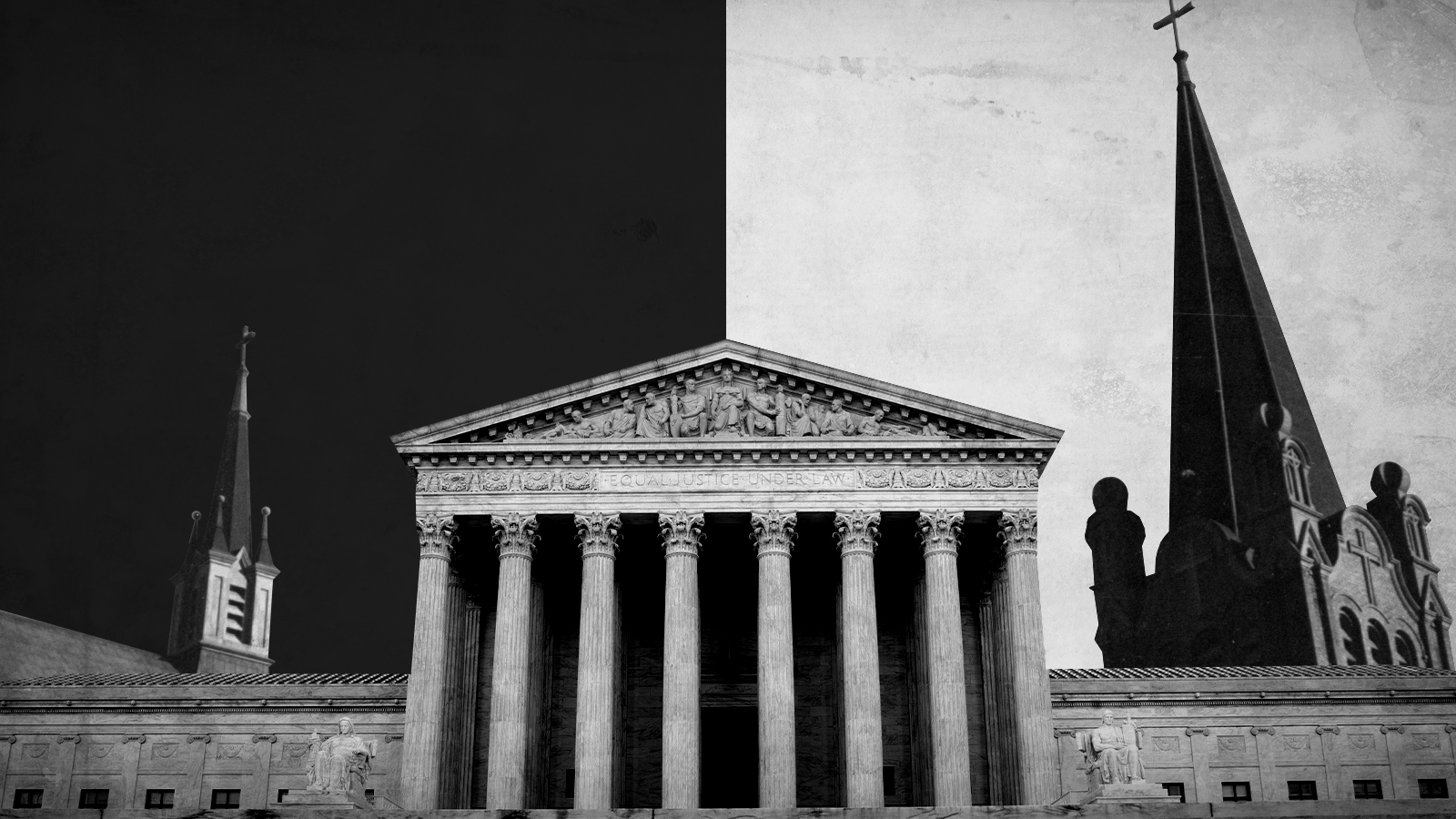SCOTUS sides with liberalism in Fulton v. Philadelphia


A free daily email with the biggest news stories of the day – and the best features from TheWeek.com
You are now subscribed
Your newsletter sign-up was successful
At a time when American politics from top to bottom is sharply and rancorously divided, a unanimous Supreme Court decision on a case wrapped up with the country's culture wars is a rare thing. Fulton v. City of Philadelphia is certainly such a case. But the decision, announced Thursday morning, is also a very good thing — for the plaintiffs, of course, but also for American liberalism, rightly understood.
The case involved a Catholic social services organization that sued Philadelphia after the city excluded it from a foster-care program due to the organization's refusal to certify same-sex couples as foster parents. Conservative justices Samuel Alito, Clarence Thomas, and Neil Gorsuch were prepared to issue a sweeping decision that overturned Employment Division v. Smith, a 1990 decision authored by Antonin Scalia that made it more difficult for religious people and groups to secure exemptions from generally applicable laws. (Justices Stephen Breyer, Brett Kavanaugh, and Amy Coney Barrett are also eager to see Smith go, but seem less certain about what should replace it.)
To avoid a sweeping outcome that likely would have forced the court's liberal justices into dissent, Chief Justice John Roberts appears to have settled on a narrower ruling against the city of Philadelphia — one that could secure their support. That kind of consensus-building on the high court, with a potentially divisive case decided narrowly and with the broadest possible consensus, is a welcome model of how to govern in a dangerously polarized time.
The Week
Escape your echo chamber. Get the facts behind the news, plus analysis from multiple perspectives.

Sign up for The Week's Free Newsletters
From our morning news briefing to a weekly Good News Newsletter, get the best of The Week delivered directly to your inbox.
From our morning news briefing to a weekly Good News Newsletter, get the best of The Week delivered directly to your inbox.
But the larger reason why the decision deserves praise is that it upholds a key principle of political liberalism. The First Amendment protects the free exercise of religion. Such exercise is not limited to individuals attending church or praying in private homes. It's a freedom of those individuals to join together and associate with others of their faith in civil society. That includes the freedom of a Catholic social service agency to facilitate adoptions, even when the foundational beliefs undergirding that agency preclude facilitating adoptions for same-sex couples.
To insist that such organizations set aside their foundational beliefs when they clash with the moral convictions of ideological progressivism — or, in the language of Fulton decision, to force a Catholic organization "to curtail its mission or to certify same-sex couples as foster parents in violation of its religious beliefs" — is an act of illiberalism. That's because it amounts to insisting not just that the state but also private religious entities must uniformly affirm a comprehensive moral view different from and in conflict with their own as the price of entering the public square. That effectively turns the country into a political community with an established church of progressive moral absolutism.
Liberalism is, or should be, an ideology open to a rich and vibrant pluralism. Which is exactly what the Supreme Court has affirmed in its decision in Fulton v. City of Philadelphia.
A free daily email with the biggest news stories of the day – and the best features from TheWeek.com
Damon Linker is a senior correspondent at TheWeek.com. He is also a former contributing editor at The New Republic and the author of The Theocons and The Religious Test.
-
 5 cinematic cartoons about Bezos betting big on 'Melania'
5 cinematic cartoons about Bezos betting big on 'Melania'Cartoons Artists take on a girlboss, a fetching newspaper, and more
-
 The fall of the generals: China’s military purge
The fall of the generals: China’s military purgeIn the Spotlight Xi Jinping’s extraordinary removal of senior general proves that no-one is safe from anti-corruption drive that has investigated millions
-
 Why the Gorton and Denton by-election is a ‘Frankenstein’s monster’
Why the Gorton and Denton by-election is a ‘Frankenstein’s monster’Talking Point Reform and the Greens have the Labour seat in their sights, but the constituency’s complex demographics make messaging tricky
-
 Big-time money squabbles: the conflict over California’s proposed billionaire tax
Big-time money squabbles: the conflict over California’s proposed billionaire taxTalking Points Californians worth more than $1.1 billion would pay a one-time 5% tax
-
 Supreme Court upholds California gerrymander
Supreme Court upholds California gerrymanderSpeed Read The emergency docket order had no dissents from the court
-
 Did Alex Pretti’s killing open a GOP rift on guns?
Did Alex Pretti’s killing open a GOP rift on guns?Talking Points Second Amendment groups push back on the White House narrative
-
 Washington grapples with ICE’s growing footprint — and future
Washington grapples with ICE’s growing footprint — and futureTALKING POINTS The deadly provocations of federal officers in Minnesota have put ICE back in the national spotlight
-
 Trump’s Greenland ambitions push NATO to the edge
Trump’s Greenland ambitions push NATO to the edgeTalking Points The military alliance is facing its worst-ever crisis
-
 Why is Trump threatening defense firms?
Why is Trump threatening defense firms?Talking Points CEO pay and stock buybacks will be restricted
-
 The billionaires’ wealth tax: a catastrophe for California?
The billionaires’ wealth tax: a catastrophe for California?Talking Point Peter Thiel and Larry Page preparing to change state residency
-
 How robust is the rule of law in the US?
How robust is the rule of law in the US?TODAY’S BIG QUESTION John Roberts says the Constitution is ‘unshaken,’ but tensions loom at the Supreme Court
